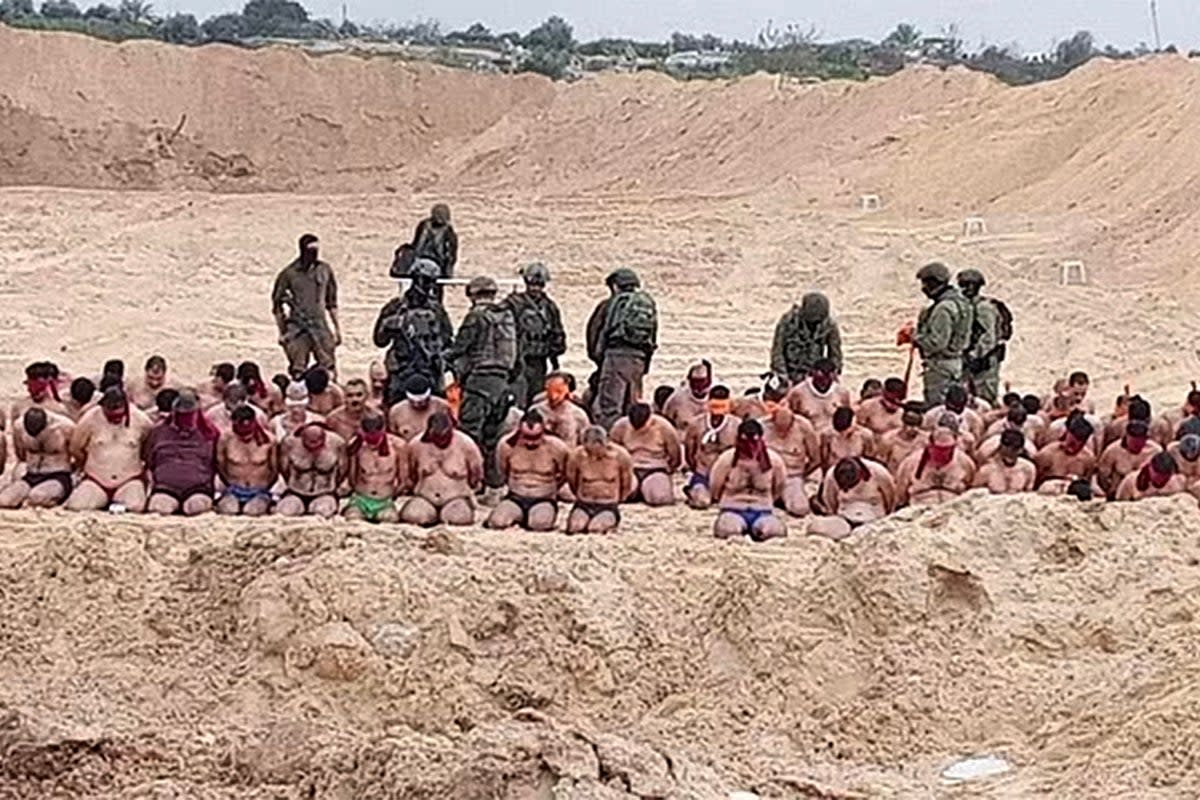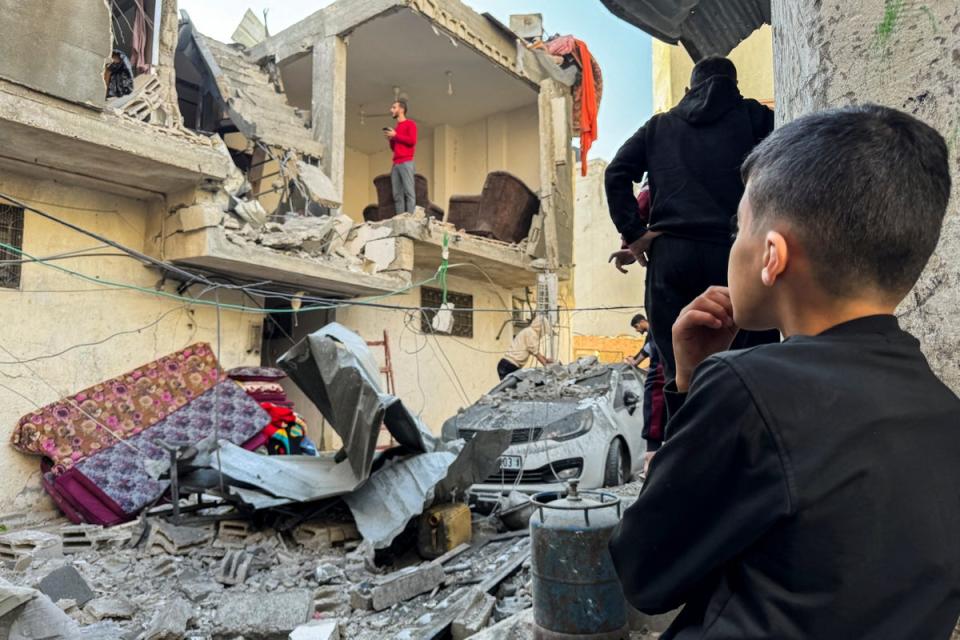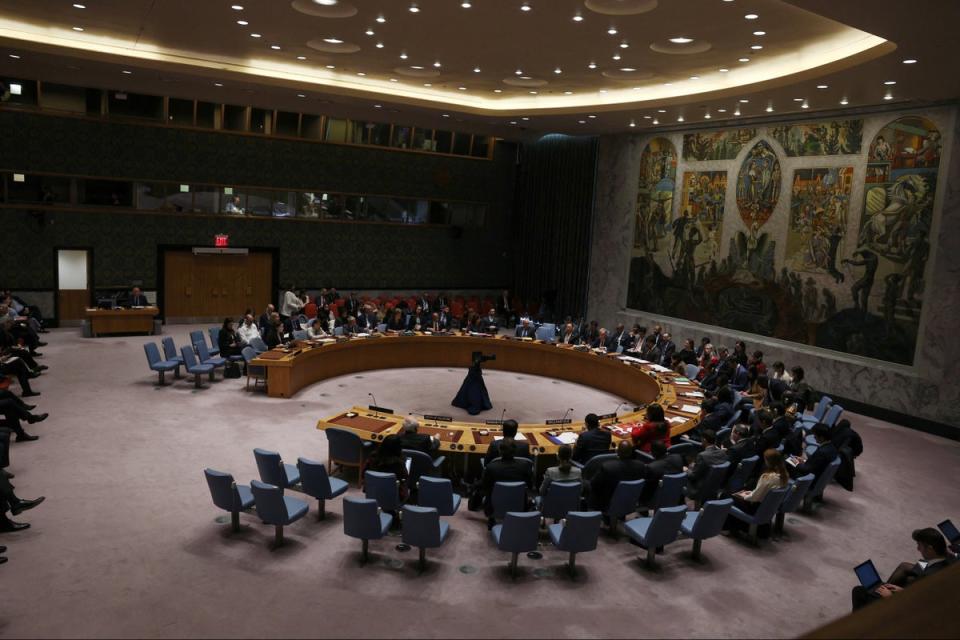US piles pressure on Israel over conduct in war on Hamas

The US has issued its strongest criticism of Israel’s conduct in its war on Hamas – calling for more to be done to protect civilians facing bombardment in Gaza.
Pressure is building on Israel to stem the growing death toll inside the besieged territory. The UN secretary-general, Antonio Guterres, said that “breaking point” has been reached in Gaza” and that a “humanitarian nightmare has engulfed the people” as Israel stepped up its strikes in the south.
The US secretary of state, Antony Blinken, said that a “gap” remains between Israel’s declared intentions to protect civilians and the mounting death toll on the ground. “As we stand here almost a week into this campaign into the south… it remains imperative that Israel put a premium on civilian protection,” Mr Blinken said. “And there does remain a gap between... the intent to protect civilians and the actual results that we’re seeing on the ground”. Mr Blinken had previously told CNN that a death toll in the south Gaza similar to the north “cannot” be allowed to happen.
Health officials in Hamas-run Gaza say that more than 17,000 people have been killed since Israeli military operations began in the wake of a Hamas attack inside Israel on 7 October that killed 1,200 people and saw 240 others taken hostage into Gaza. An aerial bombardment has been backed up by tanks and troops in recent weeks. Operations were concentrated in the north but have expanded southwards.
A blockade has also led to supplies of food, water, fuel and medicine running dangerously low, with not enough aid getting into the Strip.
Mr Guterres warned that there was a serious risk of starvation and famine, noting that half the people in northern Gaza and more than one third of displaced people in the south were “simply starving”.
Attacks from air, land and sea were “intense, continuous and widespread”, the UN secretary general told the Security Council. Civilians in Gaza “are being told to move like human pinballs – ricocheting between ever-smaller slivers of the south, without any of the basics for survival”, he added. Israel has called on Gaza residents to move southwards, laying out the areas it says will keep civilians safe and has repeatedly said it seeks to minimise civilian casualties.

However, Mr Guterres declared before the UN Security Council vote that there was no effective protection of civilians and nowhere in Gaza was safe. The United States vetoed a resolution calling for an immediate humanitarian ceasefire in Gaza on Friday, with the United Kingdom abstaining. Thirteen Security Council members voted in favour of the draft resolution brought forward by the United Arab Emirates.
Civilians in the areas where the fighting is the heaviest told The Independent the bombing was so intense it was impossible to evacuate further south to Rafah, which is still under fire but comparatively safer.
“The bombing is heavy and constant, some of my family evacuated to Rafah but they went by car,” said Iman, 25, who has been displaced three times since the start of the war and is now living with dozens of family members in makeshift accommodation. “We are worried because we don’t have a vehicle, we would have to evacuate on foot which we can’t do with my grandmother.” Even if they got south, it’s not guaranteed it will be safe, she added.
It comes as images and video showed dozens of Palestinian men in Gaza who had been rounded up by the Israeli military, stripped down to their underwear and paraded in various locations.
The first images emerged from the northern town of Beit Lahiya, showing scores of men kneeling, with hands bound behind their backs. Other images show blindfolded men, also stripped to their underwear and with their hands bound, kneeling on the ground in a sandy expanse of land. The Independent has contacted the Israeli military for a comment and has yet to receive a reply.
Eylon Levy, an Israeli government spokesman, said on Friday that those detained in northern Gaza were “military-aged men who were discovered in areas that civilians were supposed to have evacuated weeks ago”. Most of the images appear to have been taken in the Jabaliya area of northern Gaza, where there has been heavy street fighting since Israel resumed its ground offensive last week.
However, one of those pictured was identified as Diaa al-Kahlout, a correspondent for the London-based Al-Araby Al-Jadeed (The New Arab). In a statement, the news organisation said Mr Kahlout had been rounded up along with his brothers, relatives and other civilians at the market street in Beit Lahiya and then “were forced to strip off their clothes and searched and humiliated before they were taken to an unknown location”.
At the UN, the US representative, Robert Wood, said that they did not support an immediate ceasefire: “While the United States strongly supports a durable peace, in which both Israelis and Palestinians can live in peace and security, we do not support calls for an immediate ceasefire.”
He added: “This would only plant the seeds for the next war because Hamas has no desire to see a durable peace.” The US is one of the permanent members of the Security Council which has the right to veto the ceasefire resolution.

Israel’s ambassador to the UN, Gilad Erdan said: “Without the military pressure applied on Hamas no amount of diplomacy can secure the release of hostages.” More than 100 hostages were exchanged for 240 Palestinians in Israeli jails during a previous truce.
Israel says it has struck 450 Hamas targets across Gaza over the last 24 hours, with house-to-house fighting in and around the southern city of Khan Younis. The UN has said that the expanded military operations has left an aid operation “in tatters”.
While the US is supporting Israel, their concern is growing over the international outrage regarding the humanitarian situation in Gaza and the rising death toll.
“Civil order is breaking down in Gaza – the streets feel wild, particularly after dark – some aid convoys are being looted and UN vehicles stoned. Society is on the brink of full-blown collapse,” Thomas White, Gaza head of the UN’s relief and work agency for Palestinian refugees (UNRWA), wrote on X, formerly known as Twitter.
“We are reaching a point of no return in Gaza, where the blatant disregard for international humanitarian law scars our collective conscience,” the UNRWA warned.
Hospitals are overwhelmed, with doctors having to step over corpses and screaming patients as they move from case-to-case. Blood-soaked floors and a lack of sanitation have led to serious risks of complications. Infectious disease is spreading rapidly through overcrowded areas in the south.
Medics said they were unable to cope with the stream of wounded. Hundreds were waiting for surgery in the European Hospital which is located between Khan Younis and Rafah. Its ward beds are full, and thousands of displaced people are sleeping in the corridors making makeshift tents out of sheets.
“There is an overwhelming number of cases that require specialist management. There’s just too many patients and not enough staff, not enough theatre time,” said Dr Tom Potokar, a surgeon for the International Committee of the Red Cross.
“The reality is we’re seeing so many kids, so badly injured, screaming in pain, having lost their family. It is just horrifying.”
“The health system is on its knees. Gaza cannot afford to lose any more health facilities, another single ambulance, any more hospitals... or even a single hospital bed more,” World Health Organisation spokesman Christian Lindmeier said.


